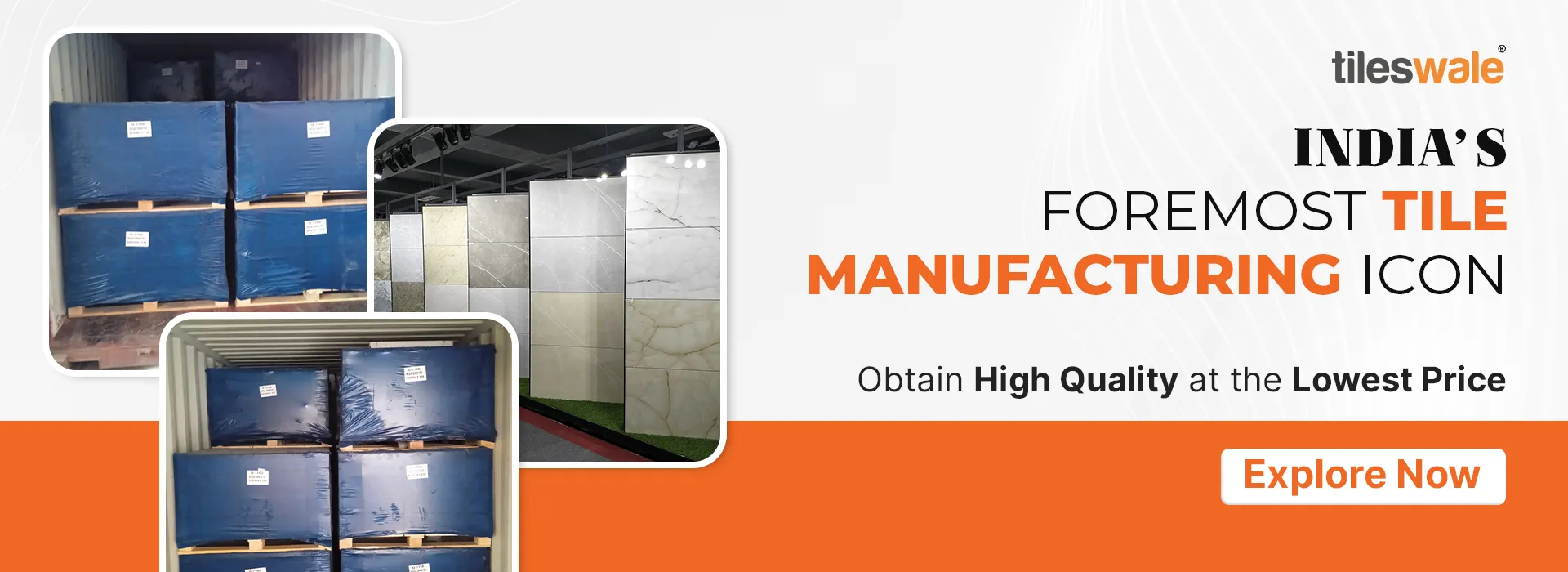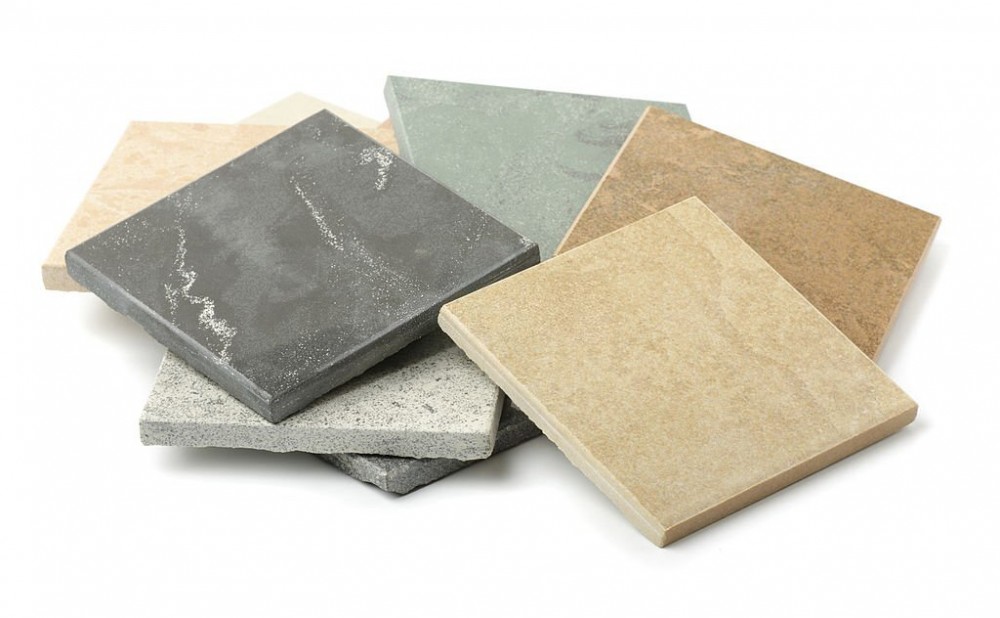
World's First Ceramic-Tile & Sanitaryware Live Marketplace. Get it on Google Play
Get it on App Store
World's First Ceramic-Tile & Sanitaryware Live Marketplace. Get it on Google Play
Get it on App Store
By Tileswale

Natural stone flooring is when you cut the tile straightforwardly from natural stone blocks. These blocks are shaped after millions of years of work by Mother Earth!
Natural Stone Flooring is a brilliant method for bringing the exquisite excellence of the outside, inside the homes. Also, Natural Stone tiles show up directly from the earth, making each tile unique, which will have its regular varieties.
Natural Stone is an ideal decision of deck for its solidness and extravagance. They give a very good quality glance at a reasonable value and are likewise simple to keep up with.
Best Thing about Natural Stone is that they are not difficult to work on and most assortments just need occasional resealing. Also, their strength and excellence make them ideal for higher-stacked floor materials.
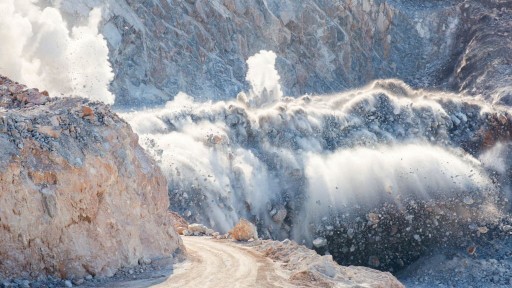
Did you know… every piece of stone has its geological history; a story to tell! And Natural Stone tile has been utilized for millennia. The most widely recognized sorts of normal stone floors are marble, travertine, limestone, rock, quartzite, travertine, and sandstone.
One of the most amazing benefits of natural stone is its immortal style. Homes and structures that utilize regular stone don't become obsolete, and tile increments home estimation. The utilization of rocks enormously affects humankind's social and specialized improvement all through progress.
The term 'stone' has a long history tracing all the way back to relic when stones were utilized as loads. Surprisingly, when you purchase normal marble, stone, onyx, or limestone, you are purchasing materials that have been around for 300 to 500 million years.
They come from all over the planet, where mainland and oceans, earth developments, tremors, and volcanic emissions have ceaselessly changed the scene. Some might try and have fossilized shells, fish, creatures, and vegetation on them.
While there are only three significant sorts of rocks like sedimentary, volcanic, and transformative. And the shape that they have developed into is the consequence of an assortment of blends and characteristics, giving the stone its getting through excellence and strength.
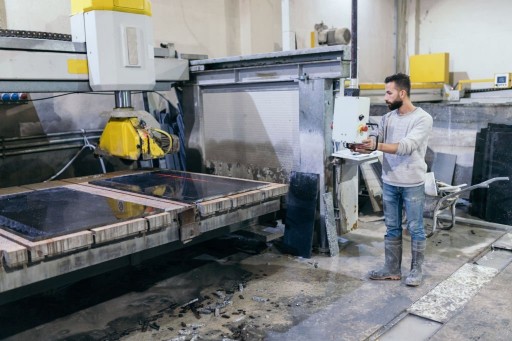
Here is a step by step production process of natural stones.
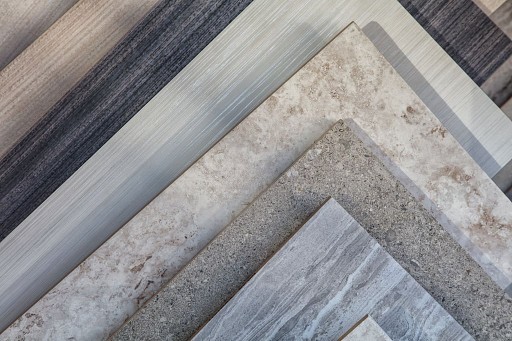
Natural stone tile is precisely the way that the name sounds. It's a creation of nature, with all-natural material directly from Mother Earth!
On the contrary, Ceramic is a tile that is usually produced using red or white mud that has been terminated in an oven. Also, Ceramic tile is accessible in two structures — coated and uncoated. By far most of the ceramic tile is made with a coating to create an impenetrable seal over the regular dirt material surface. The coated surface is extreme, waterproof, and profoundly stain-safe.
Many people are confused about tiles vs floors so here we provide a difference between tile vs natural stone which you can check below.
Ceramic tile arrives in an assortment of hardness evaluations. For extreme toughness, search for tile with a higher PEI rating, Generally, natural stone is stronger than a clay when really compressed appropriately and the wear-tear impacts adds to the qualities that give the stone its allure and appeal.
Fundamental cleaning & maintenance is important to keep both normal stone and tile looking like new. Natural stone materials are permeable and require a sealant or coating to assist with filling the pores and make the material impervious to water and stains.
Unglazed ceramic tile will require a sealant or top coat to safeguard it from staining, similar as normal stone. The sturdy coating on ceramic tile can make it durable; you can clean them with various tile cleaners.
Natural stone arrives in a wide assortment of natural variety varieties, going from fresh whites to profound beige and earthy colored tones.
The flexible variety of choices of ceramic tiles make it simple to find a clay tile that directions with the inside stylistic layout.
Since natural stone is, indeed, natural, it's one of the costlier tile choices. Their lavish look makes the cost worth the effort assuming the financial plan considers it.
Ceramic tile is one of the most reasonable choices accessible today. The costs in all actuality do go contingent upon the style, finish, and grade of the ceramic tile picked.
Unglazed tiles are more affordable than coated tiles yet require an extra completing cycle during the establishment interaction.
These checkpoints can assist you in narrowing down your options and making the best decision possible.
The very first step is to select the stone material that best suits the application. Natural stone materials come in a variety of shapes and sizes.
Characteristic: Highly durable, scratch-resistant & strong.
Application: Countertops, halls, floor with high traffic area.
Characteristic: Unique, Rich Patterns & Wide range of colors
Application: Decorative areas, bathroom & kitchen aesthetics
Characteristic: Rustic & raw texture
Application: Outdoor & Indoor Aesthetics
Characteristic: Raw look
Application: Wall cladding
Characteristic: Produces Warm glow
Application: Backlighting area
Natural stone comes in a variety of finishes, including polished, honed, flamed, and tumbled. The glossy shine of a polished finish brings out the colour of the stone, but it makes the floor slippery when wet. Honed is a matte surface, but flamed and tumbled finishes have a rough texture, and this makes them ideal for outdoor anti-skid flooring.
Natural stone comes in a rainbow of colours, including white, green, beige, pink, brown, red, and black. Choose a colour that complements the rest of the house's design.
When selecting natural stone, be certain that it is free of fractures and blemishes. Purchase hefty stone slabs for the countertop and floors. On the contrary, the wall cladding can be made of thin stone slabs.
Natural stone materials mined locally are a good choice if you're searching for a low-cost option. Imported stone resources are more expensive than those produced in India.
Natural stone available in many different types. Each type has their own characteristics. Check out different types of natural stone with their depth info:
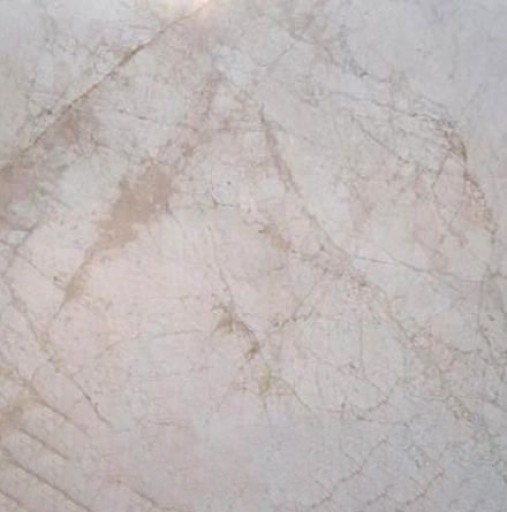
Marble Flooring is perhaps the most famous and unmistakable ground surface material. Also, Marble is versatile and arrives in a wide scope of examples and tones. Marble's natural surface opposes dust and allergenic life forms making it skilled in being protected and strong.
Marble is made of limestone taking shape from high temperatures and tension while under the ground. During this cycle, it becomes denser and harder. These tiles likewise give a sensible measure of protection, additionally assisting keep your home warm in the colder time of year and cool in the late spring with preparing.
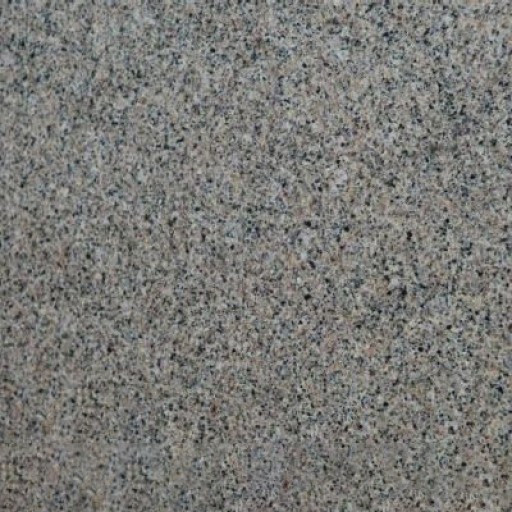
Granite gets made as magma cools underground. It is produced from different minerals, similar to feldspar and quartz, which give it a granular surface and creation. Granite flooring is a hard-edged material with an alluring regular grain. Its versatility and power make it accessible for both indoor and open-air use.
Granite is known for being perhaps the hardest kind of stone, a typical element for it being utilized inside kitchens. Granite strength likewise gives its shortcoming as granite is very hard so when it is introduced as a stone-ground surface, it requires the subflooring to be evened out totally. Granite can be accessible in various tones like dark, green, pearl, and sky.
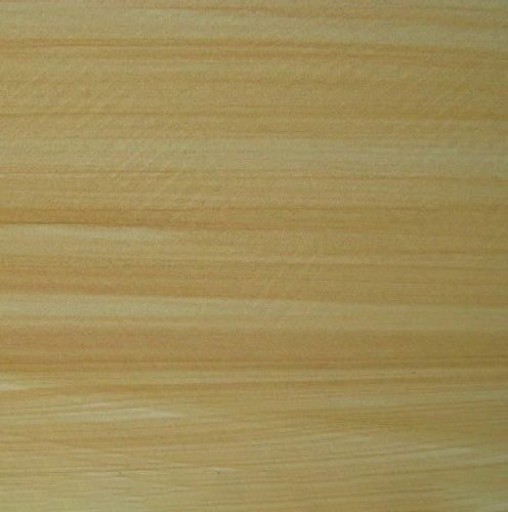
Slate is a delightful permeable stone. These kinds of stone deck materials are simpler to cut and form into level ground surface sheets. Slate is accessible in dark, dim, and gold tones. It has a stain-safe or impervious surface which makes it reasonable for establishment in the kitchens, lounge areas, washrooms, foyers, and front rooms.
Slate functions admirably in both wet and dry regions of the homes. Slate may likewise be utilized to make a wonderful mosaic example for room dividers. It is an alluring or reasonable material to use for making warm air in the home.
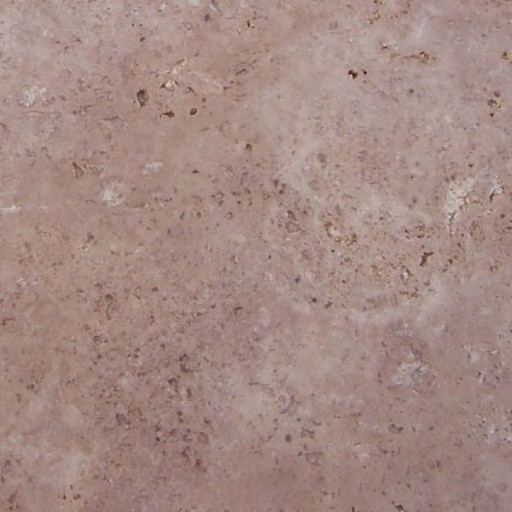
Travertine stone is frequently contrasted and marble or limestone, as it is made much the same way. It is made out of calcite, a sedimentary stone. The matte type of travertine is generally applied outside on pool encompasses, clearing, and walkways. These floors are exceptionally permeable and don't warm up without any problem.
Travertine is normally accessible in gold, ivory, and cream tones. Travertine can be honed or edged to be utilized in present-day stylistic themes. The price of travertine is less expensive when contrasted and different kinds of stone-ground surface materials.

Limestone is normally permeable and delicate. These sorts of the stone floors make a decent assortment of a wide range of enhancement styles from conventional to contemporary. It is not difficult to clean and maintain.
The tastefulness of the house is improved by the natural allure of the limestone floor. Limestone isn't lustrous or dangerous like marble, ceramic, and, different materials, making it a protected choice for property holders with children or pets. Limestone can be tracked down in an assortment of varieties from creams to charcoal.
Natural stones are also available in many different finishes which you can check below.
This is quite possibly the most well-known normal stone completions among mortgage holders. A polished completion utilizes a progression of cleaning wheels outfitted with harsh to incredibly rough precious stone cushions. Through the crushing and polishing process, these cushions heighten sparkle, variety, and surface and make the surface smooth and rich.
A polished surface is not difficult to perfect and impervious to outer specialists. As the completion seals the normal pores, the surface will in general repulse water and dampness. Thus, polished stone is great for inside floors, divider cladding, and ledge applications. Polished stone, marble, and limestone are a portion of the assortments under this classification.
This renowned completion is applied to stones that should be introduced in outside conditions where anti-slip quality is an unquestionable necessity. A flamed regular stone completion uncovered a stone chunk to the outrageous intensity and prompt cooling. This makes stone permeable, creating a harsh and finished surface.
A flamed finish can deliver a lovely provincial focus on the stone in two ways. It can safeguard the variety and other intrinsic attributes. Or on the other hand, it can likewise make a more normal appearance. As the flamed stone is slip-safe, it is best for outside applications.
The brushed completion is gotten by pulling a brush over the new substantial surface, to make the stone suitable for both indoor and open-air applications. The outer layer of the stone gives a smooth and finished feel that is great for wet conditions. Thus it is widely utilized in washrooms, poolside, and kitchens.
Natural stone is given this gets done by utilizing either a high-influence machine or a hand instrument called a bramble hammer. This finish delivers equitably circulated pits of various sizes on the stone surface. Thus, the surface becomes impervious to slip and is ideal for an outside climate with high traffic.
Aside from the ground surface, it is likewise perfect for outside divider cladding. Practically all natural stones acknowledge a Bush-pounded finish.
Otherwise called 'sawn finish', this type applies the cutting strategy to the stone utilizing jewel circle teeth. It makes almost a coarse and unpredictable surface with little sections and waves. Grooved Finish is reasonable for outside clearing, pathways, carports, porches, and so on.
In this completion, the stone piece goes through a brushed completion, a polished completion, and again back to brushing. Doing this makes a mix of polished and sharpened finishes. It makes the surface semi-rough and semi-smooth that looks rich and modern.
A shot-blasted finish is many times misjudged as a sandblasted finish. Be that as it may, the two cycles are different in numerous viewpoints. During shot impacting, the stone surface goes through a shooting interaction with metal coarseness.
The completion is accomplished by a passage machine fitted with turbines. Radial power is applied through the mechanical instrument to create a characteristic and natural look.
There is a scope of contrasts from unpleasant to fine surface with regards to a sandblasted finish. The fine completion is hazier for all intents and purposes though the harsh one is lighter.In the treatment, a high-strain of silica sand is impacted against the stone chunk by a compressed air firearm.
This produces little openings with a coarse yet flawless look. Other than that, it is broadly utilized for landmark work, craftsmanship, gravestones, and so on. As this kind is normally utilized for sandstones, it is otherwise called sandstone finish.
Natural stone is a flooring option for your kitchen that is literally as hard as a rock, making it a sturdy and long-lasting option.
Since natural stone is a natural product, the patterns vary from piece to piece, making each tile unique.
Natural stone flooring is simple to clean and maintain once it has been properly sealed.
Natural stone is strong, long-lasting, and provides excellent traction.
Since natural stone is porous, it has to be sealed on a regular basis to keep it from staining and water damage.
Natural stone kitchen floor tiles are some of the most costly flooring solutions since it is a natural resource.

Natural stone floors are a staggering way to upscale a house. They can be utilized in the inside and outside of the house which permits you to embrace your imagination by exchanging stones:
Colors
Shapes
Types
Sizes
Granite tiles are truly strong which makes them more costly to work with, however, the eventual outcome is tasteful and unblemished. They're additionally not inclined to corrosive harm, so floors will not be stained by substances like espresso or cleaning cleansers.
Sandstone and limestone tiles are an elective pick assuming you're searching for floors that are more reasonable to introduce. They're likewise reasonable assuming you're expecting a more normal look that keeps up with the respectability of the stone.

Decorative Walls are becoming plan unquestionable requirements and utilizing normal stones to make one can be effective while as yet including a dash of nature. Since the walls don't get a lot of contacts, they're less inclined to be worn out by scraped spot harm, so you can utilize stones that are profoundly finished unafraid that they will disintegrate from broad use. The cladding system even has the advantage of adding protection to the house, which keeps property holders warm during winter.
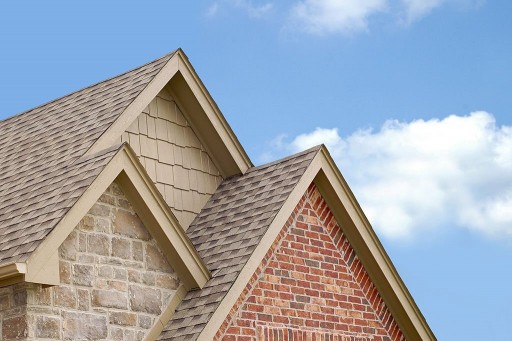
Slate tiles are great for material, as a result of their alluring appearance as well as on the grounds that they can be covered to make a more watertight surface. What additionally makes natural stone flooring compelling is that they're sturdy. Thus, they can endure an assortment of weather patterns and won't require continuous fixes. Albeit slate roofing is more costly than mud or substantial tiles, it's harmless to the ecosystem and really engaging by all accounts.
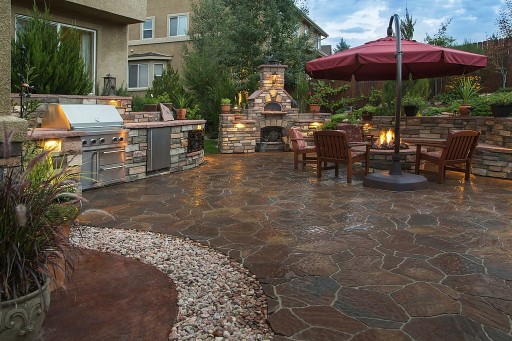
Landscaping makes gardens seriously captivating, yet they bring more regular energy into profoundly organized regions. Utilizing natural stones to construct or clear water highlights, expands the natural appeal.
Natural stone can be utilized to make enriching things, for example, figures, lights, or foot stools. They are ideal embellishments for improvement, assisting you with applying the final details to each room in your home.
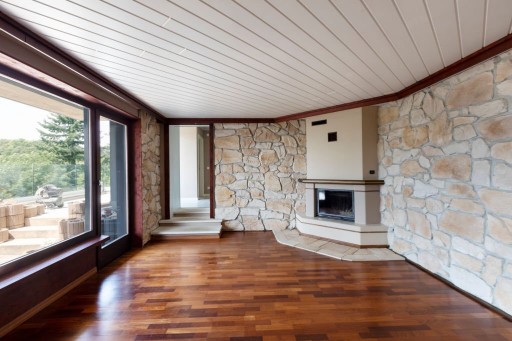
Natural stone fireplaces are both attractive and long-lasting compared to those made of other materials. This is due to natural stone's superior heat retention, which allows it to absorb and release heat for extended periods of time.
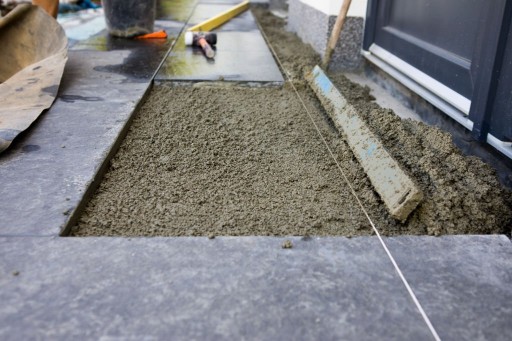
Way before you begin doing anything actual it's vital to choose the right sort of tiles you will work with. Aside from your own inclinations of variety, plan and general look you should also inspect the functionality of the tiles you choose.
Wipe or brush it clean to eliminate residue and trash, and on the off chance that you are laying tiles on a renovated floor add a layer of the support board before you start. Check the tiles are free from any scarp or debris.
Start installing from the focal point of a divider, yet first measure the length and imprint the width of tiles with a little hole between for grout. Place your tile as per your arrangement and press cautiously until it is perfectly located. Utilize a unique plastic spacer to keep the right size space between the tile (for grouting later), and check as you go that the levels are uniform. When the tiles are totally set wipe them over to eliminate dust then apply the grout to the spaces between the tiles utilizing a grouting tool at right angle.
Apply a unique natural stone sealant to tiles you have cleaned off, to assist them with opposing stains and scrapes.

Natural Stone floors can add regular excellence to your home's stylish. We're sharing our master tips on the most proficient method to clean your natural stone floors & make them look shiny as new!
Stone flooring ranges in price from ₹150 to ₹ 700 per square foot, with an average of ₹460 per square foot. Professional installation will cost an additional ₹ 300 to ₹ 1000 per square foot. So, the total cost of stone flooring installation can go around ₹ 700 per square foot.
Here's the average cost of natural stone flooring as per the stone types.
|
Natural Stone Flooring |
Price(Per Sq. ft.) |
|
Marble |
₹390-₹3900 |
|
Travertine |
₹200-₹1500 |
|
Granite |
₹150-₹1200 |
|
Slate |
₹150-₹1500 |
|
Limestone |
₹390-₹1500 |
Want to use natural stone for your next home project? Here are spaces where you can use natural stone in your home.

This might be the ideal spot to display the lush light of marble or the natural beauty of sandstone! Marble and granite will add a touch of luxury to your home, while sandstone and travertine will provide a subtle grace.
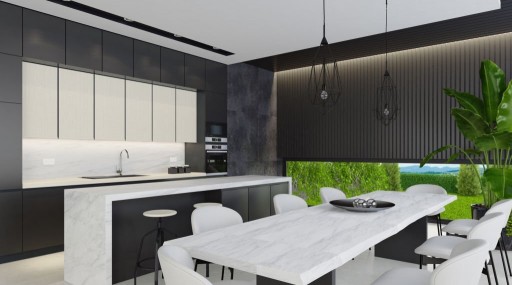
Natural stone works well in the kitchen as a countertop, backsplash, or flooring. Natural stone is an excellent choice for kitchen flooring because of its aesthetic appeal and durability.

Natural stone is also a flexible bathroom addition, however some natural stone is more suited to humid and damp environments than others. Due to their lack of porosity, granite and slate are excellent candidates. Marble is also a beautiful and elegant alternative.

Natural stone is highly robust and long-lasting, making it an excellent choice for halls and entryways. These sections of your house receive a lot of foot traffic, so you'll need flooring that can withstand wear and tear regularly. The toughest natural tones, slate and granite, are ideal.
Natural stone flooring is one of the finest solutions for households and businesses spaces, according to design professionals, interior decorators, and builders. Stone emanates elegance with a timeless aesthetic and long-lasting sturdiness that outlasts carpet, wood, and synthetic flooring.
That's it from our side! For any Tiles, Bath ware & Flooring Solution, keep in touch with Tileswale!
Granite is the most durable stone flooring material for all practical uses. When correctly sealed, it's tough to scratch and nearly impenetrable to fluids.
For Natural Stone Floors at best quality you can always visit Tileswale website & mobile application.
Whether your paving is natural stone or porcelain, we always recommend sealing it. And sealing your slabs can assist to preserve them from discoloration.
Natural stone is porous and will absorb any liquid that is spilled on it. Since all stone tiles are permeable, they must be re-sealed every 3-4 years. However, the old dirty sealer should be cleaned using an intense cleaning before re-sealing.
Industrial epoxy is one of the strongest adhesives available today. High-strength construction epoxy may also be used on natural stone tiles with the proper formulation. Since epoxy is usually flexible, it's perfect for outside tiling. And Temperature changes or fluctuations are unlikely to influence it.
Yes. Vinegar will erode or scorch your stone's surface. While certain chemicals may not cause noticeable harm to tough stones like granite, they can dissolve any sealers that have been applied.
The first step is to remove any base moldings the flooring may have.
After you've removed the molding, you should check if there are any loose tiles or weak grout lines & remove them.
The actual removal of the tiles is done with a sharp tool like scalpel and a hand mallet.
The chisel should be placed on grout lines and hit in such a way that a hole is created that allows you to reach both adjacent tiles.
After the tile is installed, we need to sand down the layer beneath it to remove the stone adhesives.
Due to the difficulty of removing real stone, sub flooring is frequently removed and replaced at the same time.
Marble is a highly valuable stone flooring material. And with tiles costing more than fifty per square meter, installation included. Solid marble slabs range in price from 80-125 dollars per square meter.
Article Updated - June 30, 2022
Submit your inquiries, we will see the rest
size:
Quantity:

+ Requirements

We have received your Inquiry. We will soon connect you with relevent Sellers via tileswale App. download now!!

